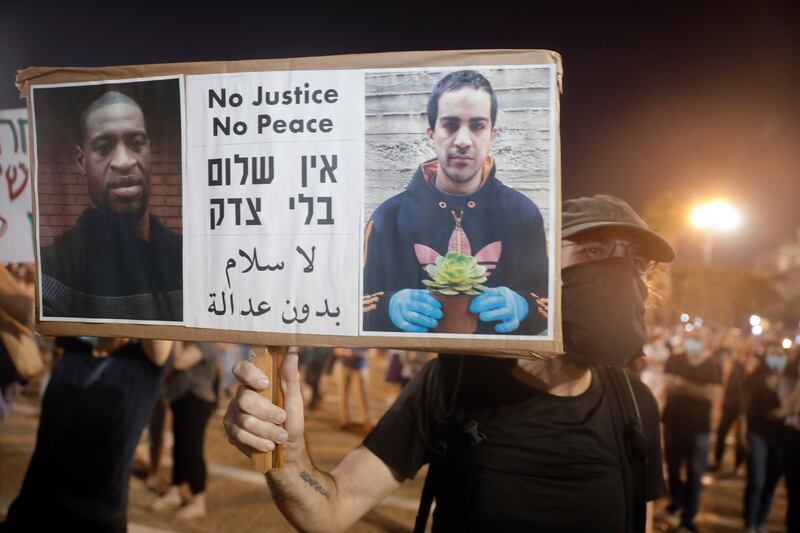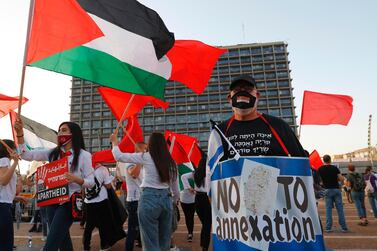Israeli Prime Minister Benjamin Netanyahu on Sunday said the deadly police shooting of an unarmed Palestinian man with autism was a “tragedy,” but stopped short of apologising for the incident.
Mr Netanyahu’s remarks were the first he’s made since police shot and killed Eyad Hallaq, a 32-year-old Palestinian with severe autism, in Jerusalem’s Old City last week. Mr Hallaq was apparently mistaken for an attacker and chased by Israeli border police forces before being shot and killed as he cowered next to a rubbish bin.
The shooting has prompted comparisons with the killing of George Floyd in the US, whose harrowing death in police custody has sparked mass demonstrations in more than 350 cities across the US.
Some Israeli figures have paid condolence visits to the grieving Hallaq family after a series of small demonstrations against police violence toward Palestinians erupted over the incident.
Defence Minister Benny Gantz, who is also Israel’s “alternate” prime minister under a power-sharing deal, apologised for the killing during a cabinet meeting last week. Mr Netanyahu, seated next to him, made no mention of it in his remarks at the time but has spoken about it subsequently.
“What happened with the Hallaq family, with Eyad Hallaq, is a tragedy. A person with disabilities, with autism, who was suspected we now know unjustly of being a terrorist in a very sensitive place,” Mr Netanyahu said Sunday. “We all share in the grief of the family.”
The Prime Minister said he was awaiting police examinations of the event, but unlike Mr Gantz did not apologise. Israel’s Justice Ministry has said two officers have been placed under house arrest, but gave no further details.
Police said that officers in the Old City spotted a man carrying a “suspicious object that looked like a pistol.” When the man failed to heed calls to stop, police said they opened fire and “neutralised” him after a chase in a volatile area that has seen several previous attacks.
The shooting came two weeks after another fatal shooting of an Arab man outside an Israeli hospital. According to police, the man was shot after stabbing a security guard. Security camera footage showed the man, who reportedly suffered from mental illness, lying on the ground when he was shot multiple times.
For Palestinians in the occupied West Bank and contested east Jerusalem, and members of Israel’s Arab minority, these cases reflect what they see as Israeli forces’ loose trigger fingers when it comes to dealing with Arab suspects.
Mr Hallaq’s death, in particular, has reverberated across Israel, with his image raised on signs at a demonstration in Tel Aviv Saturday night against Israeli plans to annex parts of the West Bank. “This is what occupation looks like,” read signs bearing Mr Hallaq’s image.
Inspired by the protests in the US, demonstrators held signs reading “Palestinian Lives Matter” with photographs of Mr Hallaq alongside Mr Floyd.
Lone Palestinian attackers with no clear links to armed groups have carried out a series of stabbings, shootings and car-ramming attacks in recent years.
Palestinians and Israeli human rights groups have long accused Israeli security forces of using excessive force in some cases, either by killing individuals who could have been arrested or using lethal force when their lives were not in danger.







